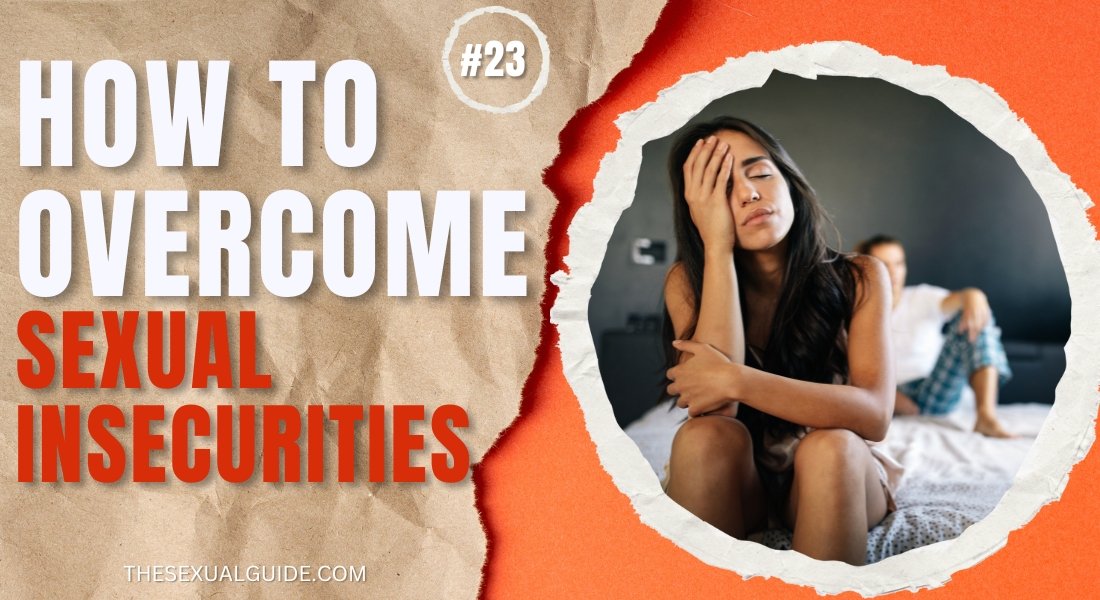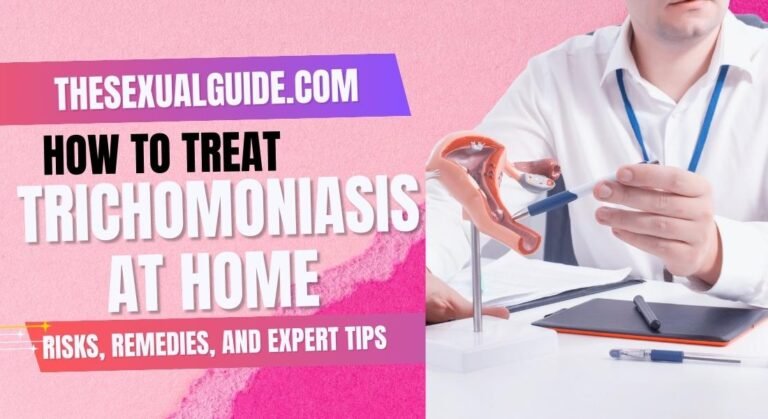Sexual insecurities can significantly impact one’s confidence and satisfaction in intimate relationships.
Addressing these concerns is essential for fostering a healthy and fulfilling sex life.
This article explores practical strategies to overcome sexual insecurities, helping you build confidence and self-acceptance in the bedroom.
Understanding Sexual Insecurities
Sexual insecurities often stem from various factors, including:
- Body Image Issues: Negative perceptions about one’s physical appearance can lead to self-consciousness during intimate moments.
- Performance Anxiety: Concerns about sexual performance, such as the ability to satisfy a partner or maintain an erection, can cause significant stress.
- Past Experiences: Negative or traumatic sexual experiences can contribute to ongoing insecurities.
Recognizing these factors is the first step toward addressing and overcoming them.
Strategies to Build Confidence and Self-Acceptance
1. Open Communication with Your Partner
Discussing your insecurities with your partner can foster understanding and support.
Open dialogue allows both parties to express their feelings, set realistic expectations, and work together to enhance intimacy.
Tips:
- Be Honest: Share your feelings and concerns without fear of judgment.
- Listen Actively: Encourage your partner to share their perspectives and listen without interrupting.
- Set Mutual Goals: Collaborate to find solutions that enhance your sexual relationship.
2. Focus on Sensation Rather Than Performance
Shifting your focus from performance to the sensations experienced during intimacy can reduce anxiety.
This approach encourages mindfulness and enhances pleasure.
Practice Sensate Focus Exercises:
- Stage 1: Partners take turns exploring each other’s bodies without the goal of intercourse, focusing solely on touch and sensation.
- Stage 2: Gradually incorporate more intimate touch, maintaining the focus on sensation rather than performance.
- Stage 3: Move toward intercourse when both partners feel comfortable, continuing to prioritize sensory experiences.
These exercises can help reduce performance pressure and build a deeper physical connection.
3. Embrace Self-Exploration
Understanding your own body and what brings you pleasure can boost sexual confidence.
Masturbation and self-exploration allow you to become more attuned to your desires and responses.
Benefits:
- Increased Self-Awareness: Learn what stimulates you and communicate this to your partner.
- Enhanced Comfort: Become more comfortable with your body, reducing self-consciousness during partner intimacy.
4. Address Body Image Concerns
Negative body image can hinder sexual confidence. Working toward body acceptance is crucial for overcoming these insecurities.
Strategies:
- Positive Affirmations: Regularly remind yourself of your strengths and attractive qualities.
- Mindfulness Practices: Engage in activities like yoga or meditation to connect with and appreciate your body.
- Professional Support: Consider therapy to address deep-seated body image issues.
5. Seek Professional Help
If sexual insecurities persist, consulting a sex therapist or counselor can be beneficial. Professionals can provide tailored strategies to address specific concerns.
Therapeutic Approaches:
- Cognitive-Behavioral Therapy (CBT): Helps reframe negative thought patterns related to sexual performance.
- Mindfulness-Based Therapy: Focuses on being present during sexual activity, reducing anxiety.
- Couples Therapy: Facilitates open communication and addresses relational factors contributing to insecurities.
Seeking professional guidance can lead to significant improvements in sexual confidence and satisfaction.
Overcoming Erectile Dysfunction (ED) Related Insecurities
Erectile dysfunction is a common issue that can contribute to sexual insecurities. Understanding and addressing ED is crucial for rebuilding confidence.
Steps to Manage ED:
- Consult a Healthcare Provider: Identify underlying causes and discuss appropriate treatments.
- Lifestyle Modifications: Incorporate regular exercise, a balanced diet, and stress management techniques to improve overall health.
- Explore Treatment Options: Medications, therapy, or devices may be recommended based on individual needs.
Trusted providers like LibidoDepot offer solutions tailored to individuals experiencing ED.
Conclusion
Overcoming sexual insecurities involves a multifaceted approach, including open communication, self-exploration, body acceptance, and professional support when necessary.
By implementing these strategies, you can build confidence and foster a more satisfying and fulfilling sexual relationship.
Call to Action: Want to learn more?
Visit LibidoDepot for trusted solutions to enhance your sexual health.
Frequently Asked Questions About Overcoming Sexual Insecurities
What are common causes of sexual insecurities?
Sexual insecurities often stem from body image concerns, past experiences, performance anxiety, unrealistic expectations from media, or lack of communication with a partner.
How can I build more sexual confidence?
Building sexual confidence involves self-acceptance, open communication with your partner, focusing on mutual pleasure, and sometimes seeking support from a therapist or sex educator.
Can therapy help with sexual insecurities?
Yes, sex therapy or counseling can be highly effective in addressing deep-rooted insecurities, improving self-esteem, and enhancing intimacy in relationships.
How do I talk to my partner about my sexual insecurities?
Choose a calm, private time to express your feelings honestly and without blame. Using “I” statements and emphasizing your desire for connection can help foster understanding and support.
References
- Understanding and Managing Sexual Performance Anxiety
- Sex and Anxiety: What You Should Know
- How to Feel More Confident Sexually
- Sexual Self-Esteem and Wellbeing
- How Body Image Affects Sexual Health
- How to Overcome Sexual Performance Anxiety






